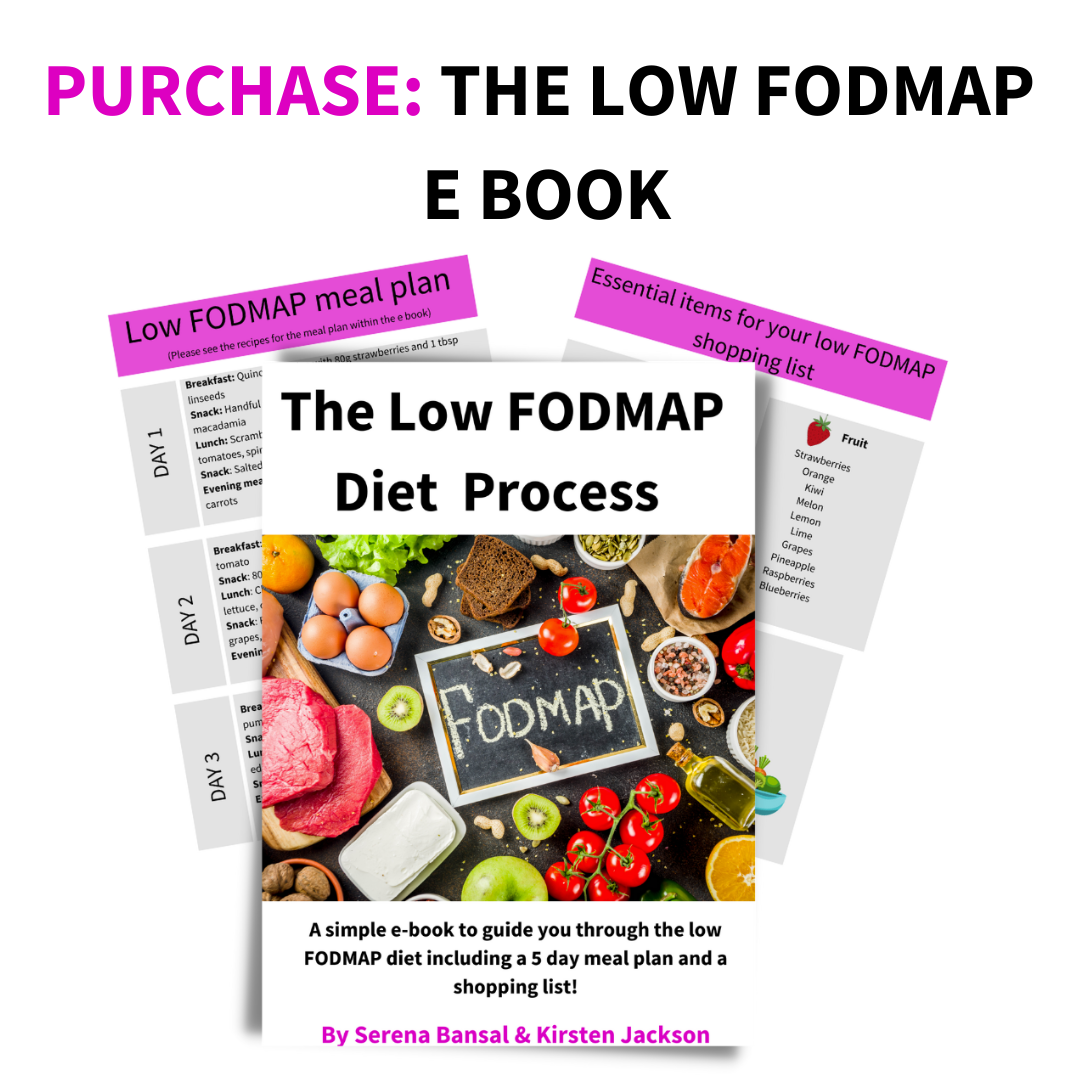Which Sweeteners Are Low FODMAP? Dietitian Advice For IBS
- Low FODMAP diet
Low FODMAP sweeteners are an important consideration for those with digestive problems. Some sweeteners are sugar alcohols or ‘polyols’, a type of FODMAP.
Even if you don’t add sweeteners to your food and drinks, they are commonly found in ‘sugar-free’ drinks, chewing gum, desserts, and yogurts.
It is important to understand what are considered low FODMAP sweeteners.
Sweeteners are often used to replace sugar in the diet; read more here about sugar and IBS. This post discusses which sweeteners are low FODMAP and which are not.

High FODMAP Sweeteners
Sorbitol
Sorbitol is a FODMAP sugar alcohol commonly used in sugar free chocolate, chewing gum and sweets. It is naturally derived from plants where the sorbitol is chemically extracted from glucose (1).
Even in those without IBS, sorbitol is known to have a laxative effect when eaten in large quantities. For example – a box of diabetic chocolates.
Mannitol
Mannitol is another FODMAP sugar alcohol. It is commonly used as an alternative to sugar in sweet foods such as diabetic products and chewing gum.
Mannitol is also used in some medications due to its pharmaceutical properties. Please note, you need to speak to your doctor or pharmacist before discontinuing medications.
Xylitol
Xylitol is a FODMAP sugar alcohol and commonly used in toothpastes and medications. Please note, toothpaste does not need to be avoided on the low FODMAP diet as you are not swallowing it.
This sugar comes from birch and other hardwood trees. Many people enjoy using this as an alternative to sugar as it contains 40% fewer calories but, unlike many other sweeteners, has little aftertaste (2).
Again, this sugar alcohol causes symptoms.
Maltitol
Malitol is a naturally occurring FODMAP sugar alcohol. It is found naturally in some fruits and vegetables.
Malitol is added to some processed foods as a healthier alternative to sugar, it is most common in sugar-free sweets and chewing gum.
It is also used as a replacement for your normal white sugar at the dinner table, as the taste and texture is very similar.

Isomalt
Again, a FODMAP sugar alcohol. It is used in ‘sugar-free’ sweets and chewing gum.
Isomalt is made up of molecules of glucose, mannitol, and sorbitol. It, too, causes digestive problems.
Low FODMAP Sweeteners
Aspartame
Despite its controversy, aspartame is commonly used in diet fizzy drinks to create a sweet taste without sugar’s negative health side effects.
Aspartame is chemically produced but has been shown to be perfectly safe for consumption (3).
Acesulfame-K
Acesulfame is a low FODMAP sweetener 200 times sweeter than sugar. It is often used alongside aspartame to balance out the aftertaste.
Acesulfame is an artificial sweetener that has been linked to cancer, however, these studies were not accurate as they were carried out in animals and were given huge doses (way more than you would manage in a day!).
Having said this, there is an advised limit of 9g / kg body weight/day (still a huge amount!) (4).
Saccharin
Saccharin is a low FODMAP sweetener which is popular for many in their tea.
It benefits from being 300 – 500 times sweeter than regular sugar, meaning you need such a tiny amount.
You can purchase saccharin from the sugar aisle in any supermarket and it comes in little ‘tablets.’ It is advisable to start with using 1 tablet at a time and tasting it.
Low FODMAP Sweeteners: Maltodextrin
Maltodextrin comes from plants and is formed of several glucose units. It is commonly used as an additive in foods and is a safe sweetener to eat whilst on the low FODMAP diet.
Low FODMAP Sweetener: Stevia (Steviol glycosides)
Stevia is found naturally occurring in the Stevia Rebaudiana plant in South America.
This is a relatively new sweetener to the market and is often marketed as being ‘healthy’ due to its natural occurrence. However, there is no science to prove if it is any more beneficial than other sweeteners.
Despite stevia being classed as a low FODMAP sweetener, some products with stevia may contain other high FODMAP ingredients, such as inulin.
Low FODMAP Sweeteners: Sucralose
Sucralose is a low FODMAP sweetener that has the benefit of not being broken down and absorbed by the body. This is where it becomes calorie-free, an obvious benefit over eating normal white sugar.
For more information on sucralose, check out our post, ‘Is sucralose FODMAP friendly?’.
Low FODMAP Sweeteners: Sodium Cyclamate
Sodium cyclamate is a low FODMAP sweetener, again commonly added to foods. It is the least potent of the sweeteners at around 30 times sweeter than regular white sugar (5).
Due to its lack of sweetness, it is not usually sold on its own. But, you will see it used alongside other sweeteners as it is much cheaper and helps to bulk out the product.
Erythritol
Erythritol is a natural low FODMAP sweetener that is considered to have a good taste. However, although it is low FODMAP, it is thought to worsen fructose absorption.
So it is recommended to avoid this sweetener in the restriction phase of the low FODMAP diet.
Checking Labels For High FODMAP Sweeteners

Reading the labels on the back of products will list the ingredients. From the label you will be able to see sweeteners. Look out for the high FODMAP sweeteners – sorbitol, xylitol and mannitol.
For example, chewing gum can cause digestive problems even in those without IBS, several pieces of chewing gum each day have a cumulative effect on the gut due to the high FODMAP sweetener content.
Low FODMAP Sweeteners You Can Buy
- Canderel – Powder Form: maltodextrin, aspartame, acesulfame-K. Tablet Form: aspartame and acesulfame-k.
- Canderel Sugarly – Granule Form: aspartame and acesulfame-k.
- Canderel Stevia Tablets – Tablet Form: steviol glycosides.
- Silverspoon Sweetener – Powder Form: maltodextrin, acesulfame-k and aspartame. Tablet Form: acesulfame-k and aspartame.
- Silver Spoon Truvia Pouch – Powder Form: steviol glycosides.
- Hermesetas – Tablet Form: saccharin & sucralose mixture. Granulated Form: maltodextrin, sodium cyclamate and sodium saccharin.
- Whole Earth Sweeteners (Sweet Mini Cubes With Stevia) – Cube Form: Steviol glycosides.
- Splenda Zero Liquid Sweetener – Liquid Form: sucralose.
- Splenda Cake Can – Powder Form: sucralose.
- Sweetex – Tablet Form: Sodium Saccharin.
SUMMARY
Whilst we may be trying to replace sugar in the diet and choose sweeteners to still get that sweetness, we now know that it poses some difficulties in ensuring that the sweetener is low FODMAP and therefore won’t affect your IBS.
If you have IBS and are on a low FODMAP diet, now you have a list of sweeteners that won’t trigger your symptoms. Good label reading will also help to watch out for pesky high FODMAP sweeteners.
Updated by Camilla Donaldson BSc Hons Nutrition, reviewed by Serena Bansal Registered Dietitian BSc Hons and Kirsten Jackson Consultant Dietitian BSc Hons, RD, PG Cert